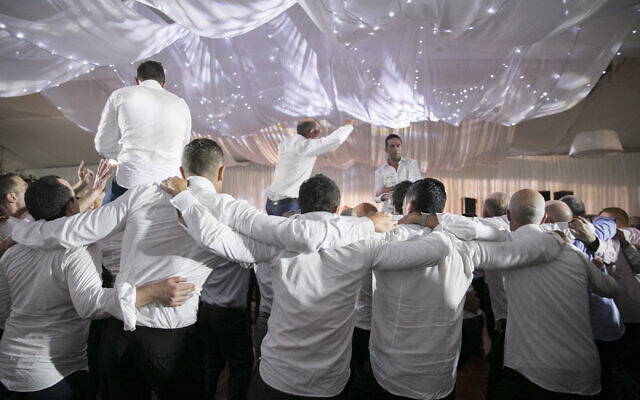Our community together apart
'Our way of life has been turned on its head. Yet in this mess, our community has emerged clearer and stronger than before'.

I HAVE been davening from an empty building since March. Day in, day out, as I walk through our cavernous main sanctuary, the silence never fails to shock me – gone are the congregants greeting each other, the sounds of excited children and quiet prayers as individuals wrap themselves in their tallits.
Yet while I am leading services facing an empty room, I know that in reality I am facing hundreds of participants as they beam our bimah into their living rooms. While we may not be able to hear one another, to kiss the Torah or to tear and pass around the challah, we are still together.
When the first lockdown began, TBI pulled our resources together to honour the Warsaw ghetto’s Rabbi Isaac Nissenbaum’s idea of Kiddush Ha-Hayyim, doing everything we can to ensure we live full Jewish lives. Rabbi Nissenbaum wrote: “In the past our enemies demanded our soul and the Jew sacrificed his body in sanctifying God’s name. Now the enemy demands the body of the Jew. That makes it imperative for the Jew to defend it and protect it.”
While missing out on attending services in person is not easy, we need to do all that we can to not only safeguard life – pikuach nefesh – but to make sure that our people and our tradition thrive.
To honour Kiddush Ha-Hayyim, TBI moved our classes online and established – for the first time in 90 years – a daily Maariv service. We created a phone tree to regularly check in on our most vulnerable congregants and accelerated our ‘take them a meal’ home cooking delivery program. We had already been broadcasting our services to the world wide web for several years. To these, we added a ‘Torah cam’, which allows people watching to see the scroll as it is being leyned, and a digital Siddur for those who don’t have a prayerbook at home.
We have continued to mark simchas – physically distanced brit milah and virtual baby namings. With our existing ‘Pop Up Shabbat’ infrastructure, we have been able to bring Torah to B’nei Mitzvah families’ homes with our portable Ark. We have had grandparents Zoom in for aliyot, and family members as far away as London able to lead the Prayer for Israel during the service.
Daniel Jenshel wrote in The AJN recently that “shules really should be referred to as ‘community centres’.” While I cannot see TBI’s community from the bimah anymore, COVID-19 has simply revealed to us what was already there – a thriving community of care. We are not just those who enter the bricks and mortar, we are congregants who call each other to offer support, who meet for weekly conversations about Talmud, who sing with our Cantor, who recite Mi Sheiberach together, and who rally to support the vulnerable. We still greet each other ‘Shabbat Shalom’ or ‘Gut Shabbes’, but this is through YouTube and Facebook as people interact with our video broadcasts.
As this lockdown extends into September, TBI have developed a comprehensive High Holy Day plan with the theme ‘yachad, together heart to heart’. Through the developments we have made to our online services, congregants will be able to receive honours and participate through Zoom. We will host services for Tots and young families, are collaborating with other congregations to ensure our program is as exciting as possible, and we will have sermons available separately from service for anyone who wants to listen. This program will allow us to welcome 5781 together while staying apart — connecting heart to heart!
Our way of life has been turned on its head. Yet in this mess, our community has emerged clearer and stronger than before. From hundreds of homes, across Australia, we are tuned in together, learning, sharing, praying and belonging.
Truly this is a blessing amongst this crisis.
Rabbi Gersh Lazarow is senior rabbi of Temple Beth Israel.

comments